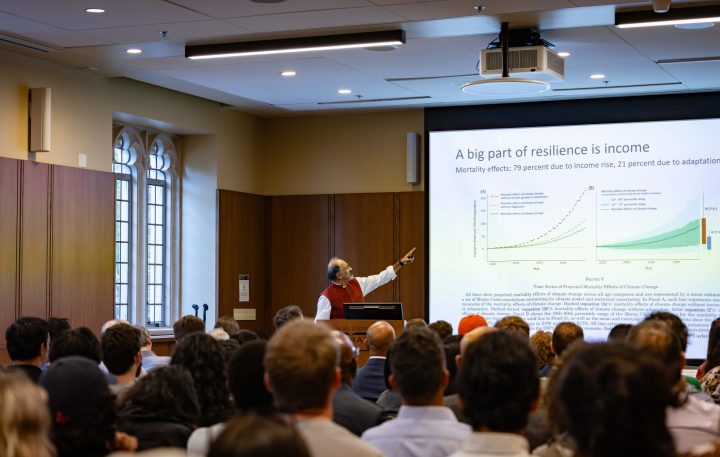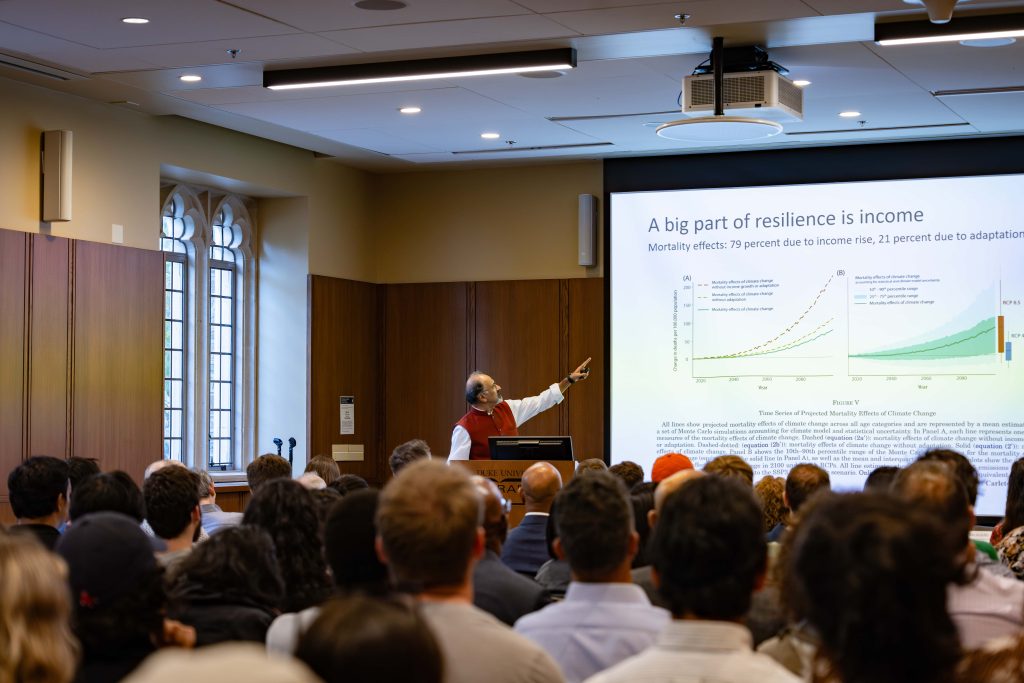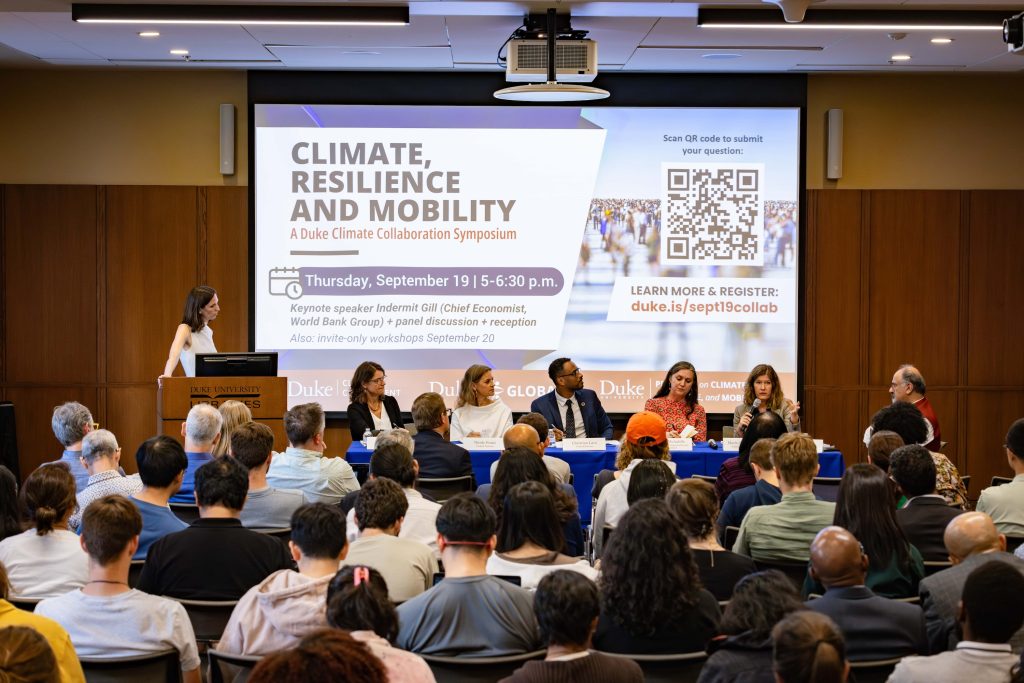
Discussing Migration, Adaptation and Aid at Duke Climate Symposium
Experts convene to talk policy, missteps and solutions.
-By Charles Givens
September 19, 2024
In his keynote speech at the Climate, Resilience, and Mobility: A Duke Climate Collaboration Symposium event on Thursday, September 19, Dr. Indermit Gill, Chief Economist of the World Bank Group, argued that the world urgently needs to rethink its approach to climate resilience, particularly in the face of lagging economic growth in developing nations.

The symposium is the third of the Duke Climate Collaboration Symposia, a series of convenings designed to accelerate climate solutions by developing new collaborations among Duke scholars and external partners. Each symposium focuses on identifying opportunities for Duke University to make the most of its interdisciplinary expertise and convening power for meaningful impact on climate challenges.
“CLIMATE CHANGE IS ACCELERATING, BUT RESILIENCE IS LAGGING.”
Gill, a former Duke Sanford School of Public Policy professor and former head of the Duke Center for International Development, emphasized the findings of an upcoming World Bank report that highlights the crippling impact of uncertainty on climate adaptation. “The poor are far more likely to make [bad] decisions when faced with physical uncertainty,” Gill explained, noting that the inability to assess and prepare for future climate risks due to a lack of information poses a greater challenge than the risks themselves. This ambiguity, he argued, hampers long-term growth and weakens resilience, particularly in developing nations already experiencing declining growth rates.
“Climate change is accelerating, but resilience is lagging,” Gill warned, stressing the need for a shift away from infrastructure-heavy solutions. Instead of trying to change people’s behavior, he suggested that governments and non-government organizations should help them use the ways they already deal with problems and invest in things like long-term weather forecasts. Gil argued that by using data, groups can replace the guesswork in predicting risks with more accurate measurements. This would in turn make insurance companies stronger and help prepare better for things like natural disasters.
After Dr. Gill’s speech, a panel of experts convened and discussed different approaches to climate resilience. Laurie Ashley of USAID stressed that “adaptation is the future of development,” emphasizing the need for inherently resilient development strategies. Nicole Franz of the Fisheries and Aquaculture Division, Food and Agriculture Organization of the U.N. highlighted the importance of integrating traditional knowledge with scientific approaches, particularly in sectors like small-scale fisheries crucial for global food security.
The role of migration in climate adaptation sparked lively debate. Marie McAuliffe of the International Organization for Migration presented evidence of migration as a driver of resilience, particularly through remittances. However, she acknowledged that there were fewer opportunities for people to immigrate from less developed countries.
“I HADN’T REALLY CONSIDERED THE ASPECT OF PREPARING FOR ADAPTATIONS AND RESILIENCE TO THE IMMEDIATE HARMS.”
The panel emphasized the importance of inter-agency collaboration, long-term perspectives on investment and land restoration initiatives, like those highlighted by Marie-Soleil Turmel of Catholic Relief Services, which have shown success in boosting crop yields and mitigating drought impacts.
The symposium concluded with a call to action, urging a collective and multifaceted response to climate change that bridges disciplines, sectors and perspectives.
“I’m someone who’s very interested in sustainability and tackling the climate change challenge,” said Connor Ennis, a Duke freshman majoring in public policy and environmental science. “I hadn’t really considered the aspect of preparing for adaptations and resilience to the immediate harms.”

“It was illuminating to see the perspective of people who are working in major economic institutions like the World Bank, but I also think there is a lot of space for different kinds of creative thinking,” said Nora Salitan, a dual degree candidate at the Sanford School of Public Policy and Duke Law School.
The event was hosted by Sarah Bermeo and Kerilyn Schewel, co-directors of the Program on Climate, Resilience and Mobility (PCRM) at Duke University. PCRM serves as a cross-disciplinary platform that brings together researchers, practitioners and policymakers to look more deeply into the interconnected nature of climate change and global mobility.
This series of events is funded by a gift from The Duke Endowment in support of the Duke Climate Commitment, which unites the university’s education, research, operations and public service missions to address climate challenges.
